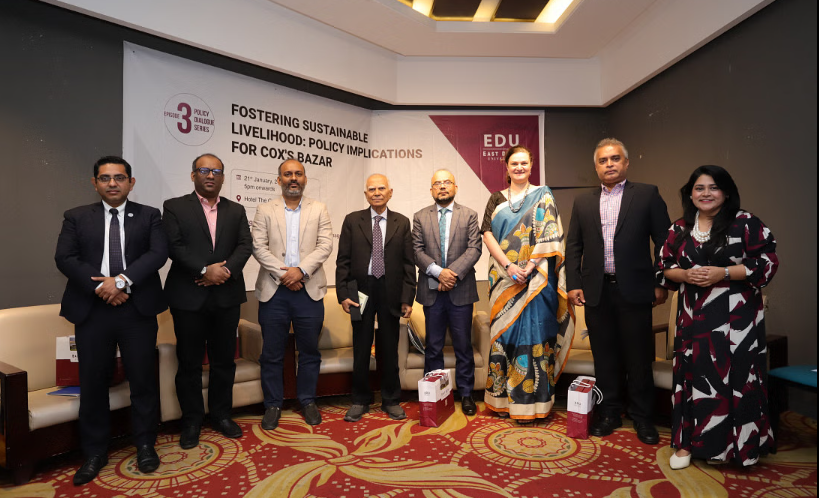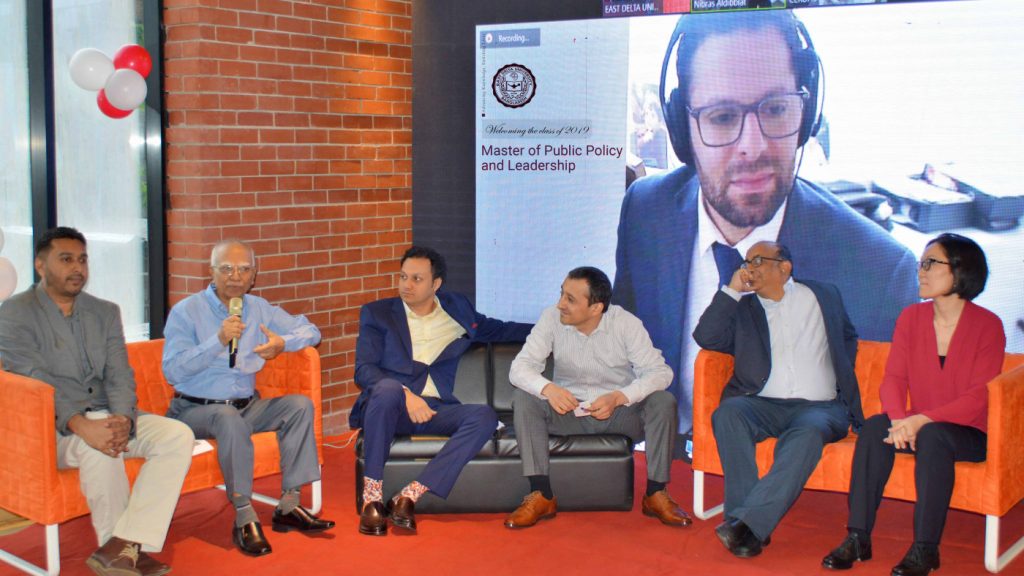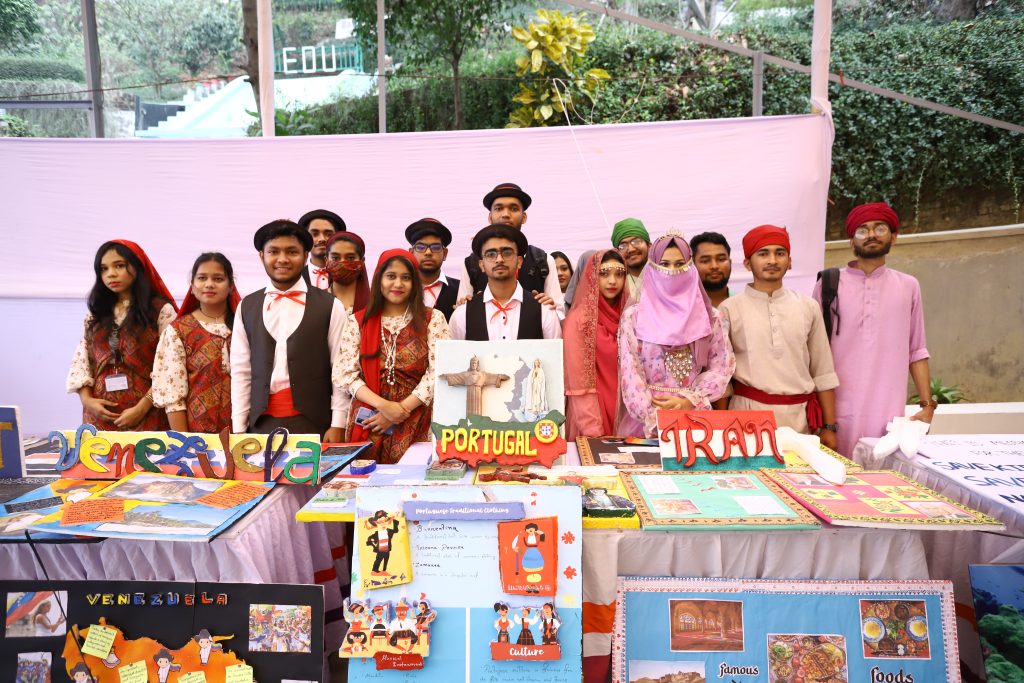East Delta University recently hosted a Policy Dialogue on 21st January, with the title.” Fostering Sustainable Livelihoods: Policy Implications for Cox’s Bazar”. The Chief Guest of the episode was Mohammad Mizanur Rahman, Additional Secretary, Refugee Relief and Repatriation Commissioner, Cox Bazar. The chairperson of the event was Professor M Sekander Khan, Professorial Fellow, East Delta University and Tasmeem Chowdhury Bonhi, Chairperson, Department of Public Leadership, Management and Governance, moderated the insightful session on livelihood challenges and opportunities in the region. Among other prominent guests, Honorable Member of Parliament of Maheshkhali Upazilla, Mr. Asheq Ullah Rafiq also attended the session.
In a thought-provoking policy dialogue series, stakeholders gathered to discuss and address the challenges and opportunities related to fostering sustainable livelihoods in Cox’s Bazar. The event aimed to bring together key figures and organizations to share insights, strategies, and potential policy changes for the betterment of the region.
The event commenced with a warm welcome from the moderator, emphasizing the importance of uniting voices and spreading awareness about policies and empowerment issues, particularly those related to environment, climate change, economy, and social sustainability.
Ruchika Bahl, representing the International Labour Organization (ILO), shed light on ILO’s commitment to social justice since its founding in 1919. She highlighted the crucial role of sustainable development and equality in achieving social justice. Bahl emphasized ILO’s recent endeavors in Cox’s Bazar, focusing on skill development to create job opportunities and equip individuals with the necessary skills.
Arifur Rahman, Founder Chief Executive, YPSA, a local organization with over 30 years of service in Cox’s Bazar, addressed the challenges faced by the region. He discussed the changes observed in the last five years, particularly the vulnerabilities faced by aged communities and ethnic groups. Rahman stressed the need for increased investment, both from the government and private organizations, to elevate the status of livelihoods in Cox’s Bazar.
Abed Hasan Sagor, Director, Cox’s Bazar Chamber of Commerce and Industry, shared valuable insights into the challenges faced by businesses in the region. He highlighted the necessity for updated policies, emphasizing the importance of collaboration between the government, private sector, and local communities for effective development.
The discussion delved into the unique challenges faced by women in Cox’s Bazar, with a focus on cultural and social barriers. The panelists discussed the need for creative solutions to empower women economically and socially, including providing them with skills that lead to increased income.
Shafaat Ahmed, Project Manager BBC Media Action found the information gap to be one of the major challenges in the livelihood sector. Information asymmetry is a dominant gap and communication agencies are working towards filling it up.
Advocate Arafat Partho, addressing climate change-related challenges, emphasized the absence of policies to incentivize the affected communities. He raised questions about the future of land used by refugees once they leave, underlining the need for sustainable solutions.
Mizanur Rahman, Additional Secretary, RRRC, pointed out the potential and limitations of Cox’s Bazar. He discussed the district’s food deficit, the tourism industry’s untapped potential, and the challenges posed by the Rohingya crisis. He emphasized on collaborative efforts between the government, private sector, and local communities to bring about meaningful changes. The pressing issue of the Rohingya crisis was acknowledged, and the need for innovative and dignified solutions was focused.
The audience actively participated in the discussion, raising concerns about unemployment rates, entrepreneurship skills, and the necessity for a stronger linkage between skill development and job opportunities. Questions also touched upon issues related to disaster management, skill levels, and the moral aspects aligned with the curriculum.
Ruchika Bahl addressed ILO’s commitment to green jobs, highlighting initiatives to set up environmentally friendly jobs for youth, particularly in tourism sectors.
In summary, the policy dialogue series in Cox’s Bazar provided a platform for a comprehensive discussion on sustainable livelihoods, addressing challenges, proposing solutions, and urging collaborative action for the holistic development of the region. The insights shared during the event will contribute to shaping future policies and initiatives aimed at fostering a resilient and sustainable Cox’s Bazar.


